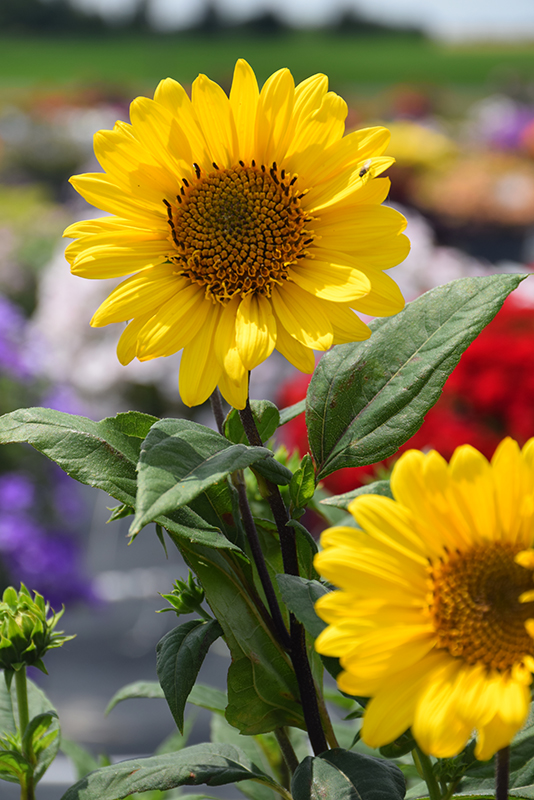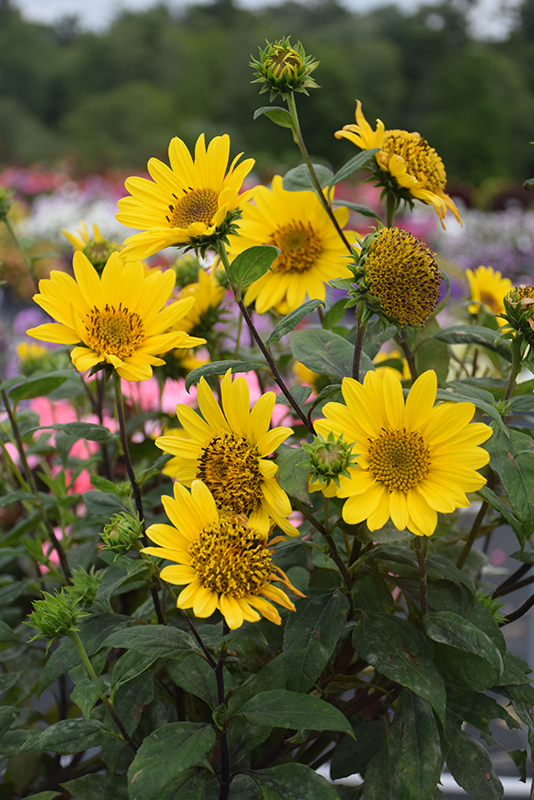Suncatcher Sunflower
Helianthus 'Suncatcher'
Height: 4 feet
Spacing: 24 inches
Sunlight:
![]()
Hardiness Zone: 4a
Description:
A free flowering perennial sunflower; blooms from summer through the fall; bushy, upright plants are blanketed with sunny yellow flowers with deep golden yellow center discs; low maintenance, great for borders, beds or cutting gardens
Ornamental Features
Suncatcher Sunflower has masses of beautiful yellow daisy flowers with gold eyes at the ends of the stems from mid summer to late fall, which are most effective when planted in groupings. The flowers are excellent for cutting. Its pointy leaves remain dark green in color throughout the season.
Landscape Attributes
Suncatcher Sunflower is an herbaceous perennial with an upright spreading habit of growth. Its medium texture blends into the garden, but can always be balanced by a couple of finer or coarser plants for an effective composition.
This plant will require occasional maintenance and upkeep, and is best cleaned up in early spring before it resumes active growth for the season. It is a good choice for attracting birds, bees and butterflies to your yard. Gardeners should be aware of the following characteristic(s) that may warrant special consideration;
- Disease
Suncatcher Sunflower is recommended for the following landscape applications;
- Mass Planting
- Hedges/Screening
- General Garden Use
- Naturalizing And Woodland Gardens
Planting & Growing
Suncatcher Sunflower will grow to be about 4 feet tall at maturity, with a spread of 3 feet. When grown in masses or used as a bedding plant, individual plants should be spaced approximately 24 inches apart. It tends to be leggy, with a typical clearance of 1 foot from the ground, and should be underplanted with lower-growing perennials. It grows at a fast rate, and under ideal conditions can be expected to live for approximately 10 years. As an herbaceous perennial, this plant will usually die back to the crown each winter, and will regrow from the base each spring. Be careful not to disturb the crown in late winter when it may not be readily seen!
This plant should only be grown in full sunlight. It does best in average to evenly moist conditions, but will not tolerate standing water. This plant should not require much in the way of fertilizing once established, although it may appreciate a shot of general-purpose fertilizer from time to time early in the growing season. It is not particular as to soil type or pH. It is highly tolerant of urban pollution and will even thrive in inner city environments. This particular variety is an interspecific hybrid. It can be propagated by division; however, as a cultivated variety, be aware that it may be subject to certain restrictions or prohibitions on propagation.

